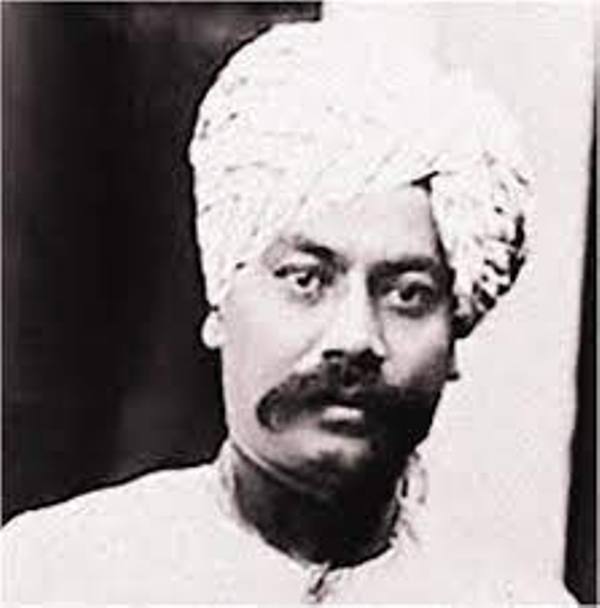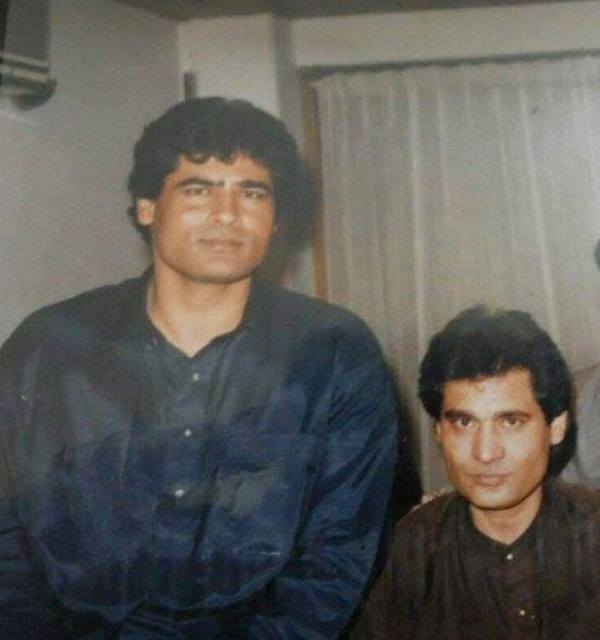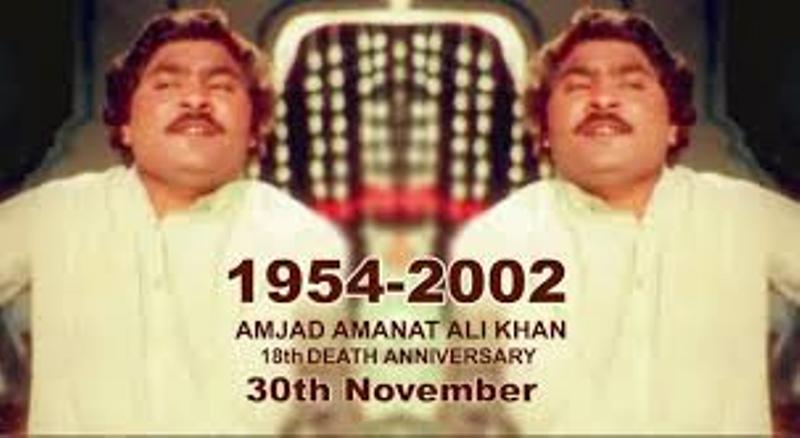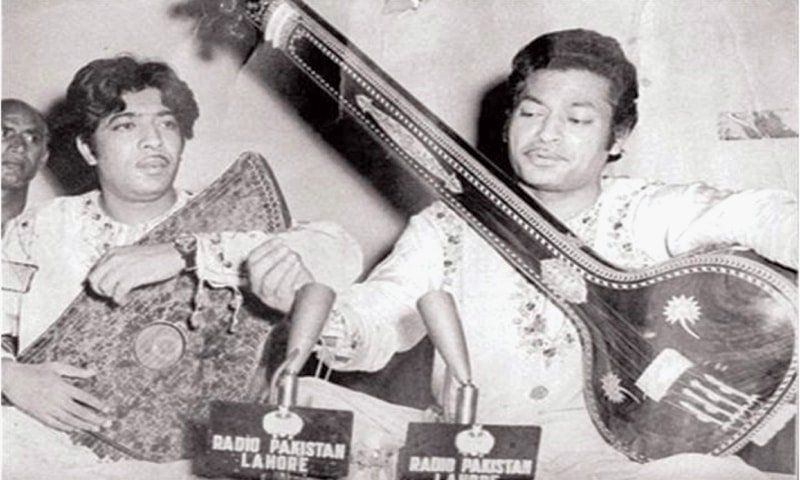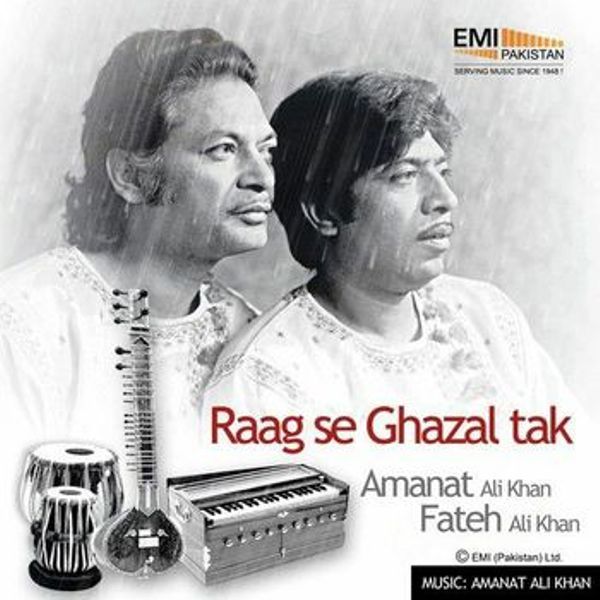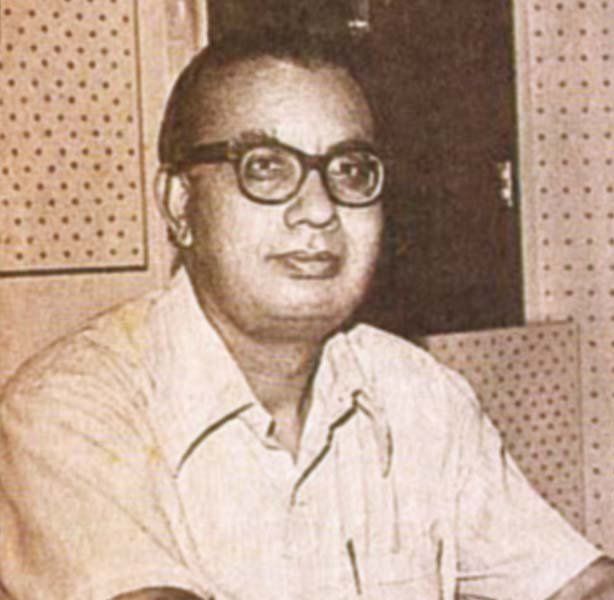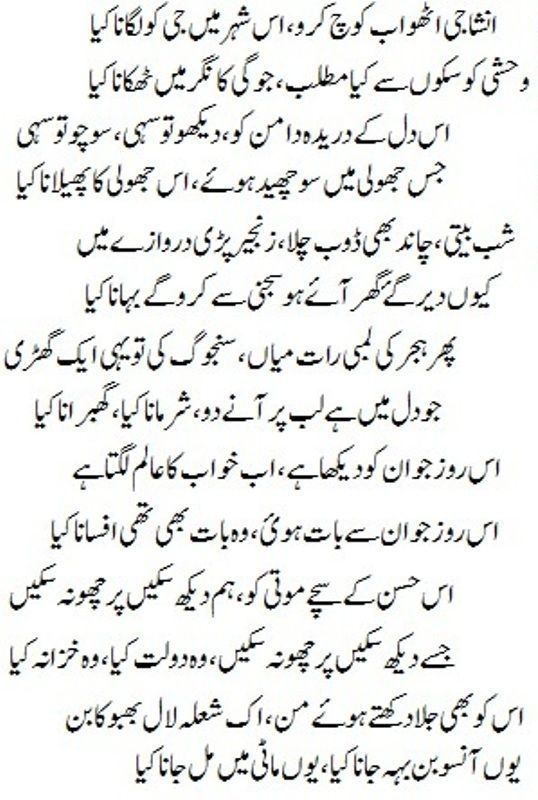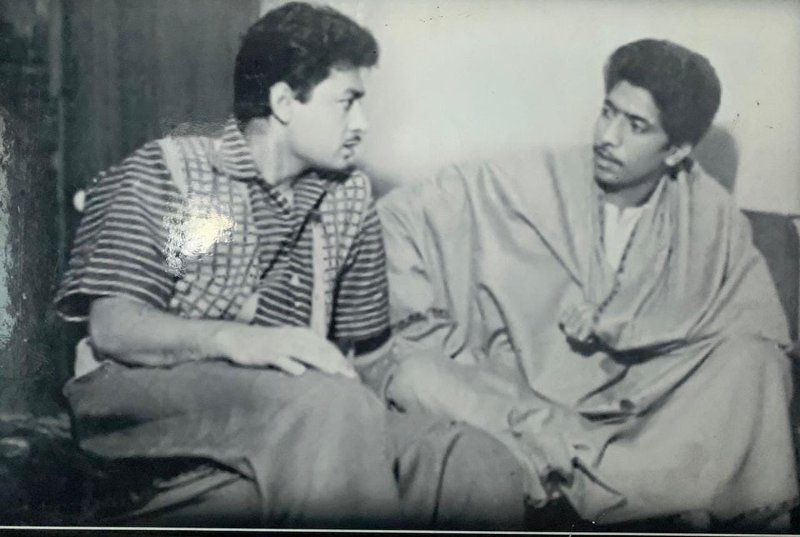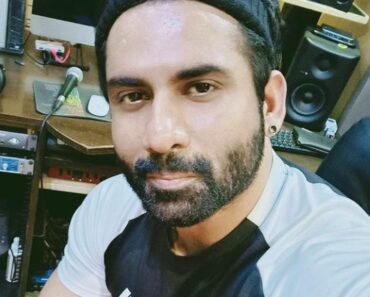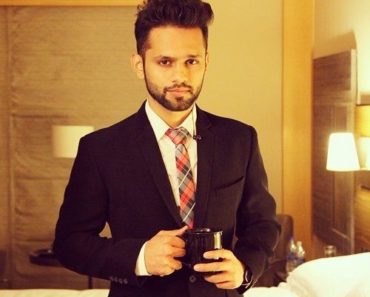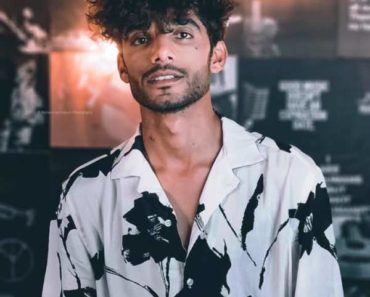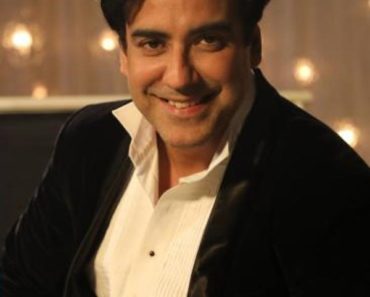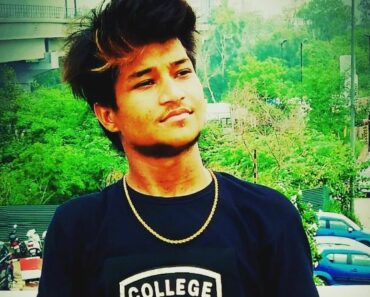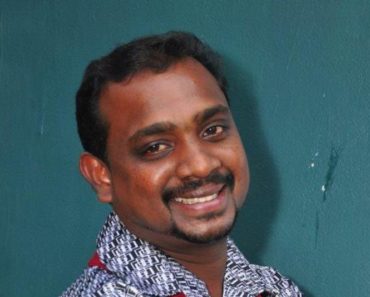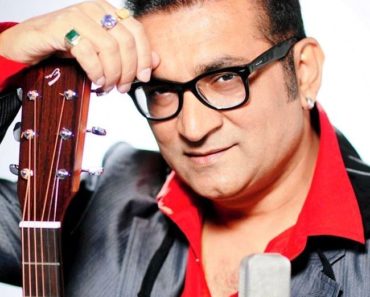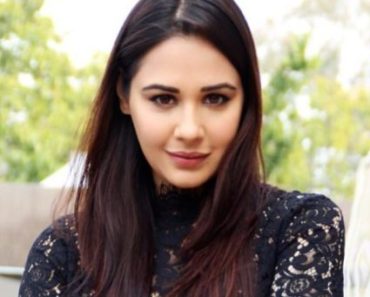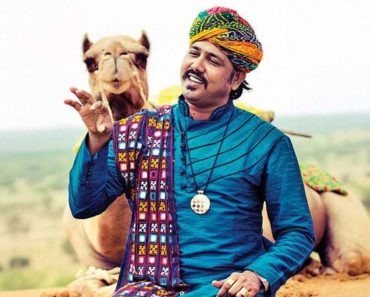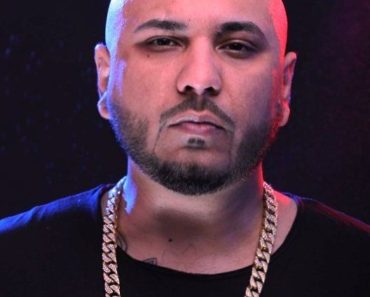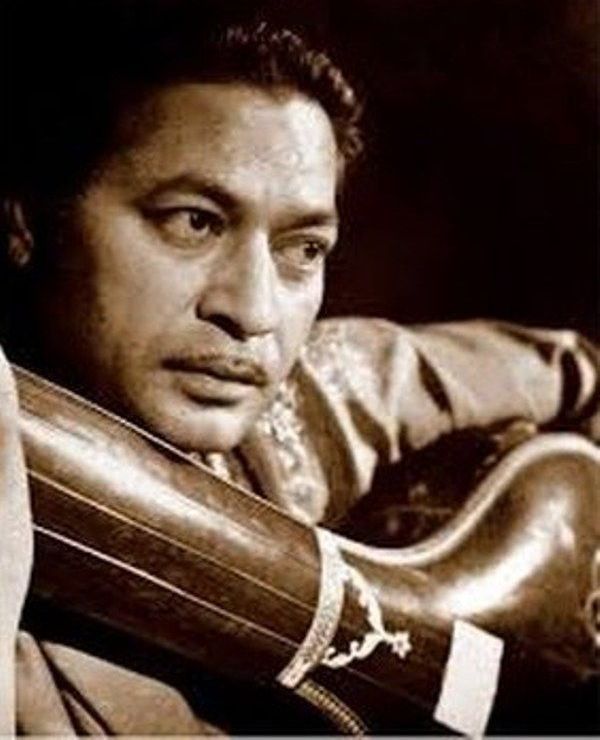 Ustad Amanat Ali khan (1922-1974) was a Pakistani vocalist, ghazal singer, and composer. He belonged to Patiala Gharana that used to perform traditional and classical Hindustani music. He used to sing duets along with his younger brother Ustad Bade Fateh Ali Khan, which were aired by Radio Pakistan Lahore Station. In the late 1950s and early 1960s, the singer gained immense fame. In 1969, Khan was honoured with Pride of Performance by the President of Pakistan. He is also known as “the maestro of the Patiala Gharana” for his exceptional voice. The singer died on 18 September 1974.
Ustad Amanat Ali khan (1922-1974) was a Pakistani vocalist, ghazal singer, and composer. He belonged to Patiala Gharana that used to perform traditional and classical Hindustani music. He used to sing duets along with his younger brother Ustad Bade Fateh Ali Khan, which were aired by Radio Pakistan Lahore Station. In the late 1950s and early 1960s, the singer gained immense fame. In 1969, Khan was honoured with Pride of Performance by the President of Pakistan. He is also known as “the maestro of the Patiala Gharana” for his exceptional voice. The singer died on 18 September 1974.
Contents
Wiki/Biography
Ustad Amanat Ali Khan was born in 1922 (age 52 years; at the time of death) in Sham Chaurasi, Hoshiarpur, Punjab. In 1947, he had to migrate to Pakistan along with his family after the partition of India. He learned music from his father Ustad Akhtar Hussain Khan, who was also a renowned vocalist under the patronage of Maharaja of Patiala. He started performing in the courts of Maharaja of Patiala in his mid-teens along with his brother.
Family
Ustad Amanat Ali Khan belonged to the Patiala Gharana.
Parents & Siblings
His father, Ustad Akhtar Hussain Khan, was an accomplished vocalist, who used to sing under the patronage of the Maharaja of Patiala.
He has two younger brothers, Ustad Fateh Ali Khan (also known as Bade Fateh Ali Khan) and Ustad Hamid Ali Khan, who also carried the lineage of Patiala Gharana.
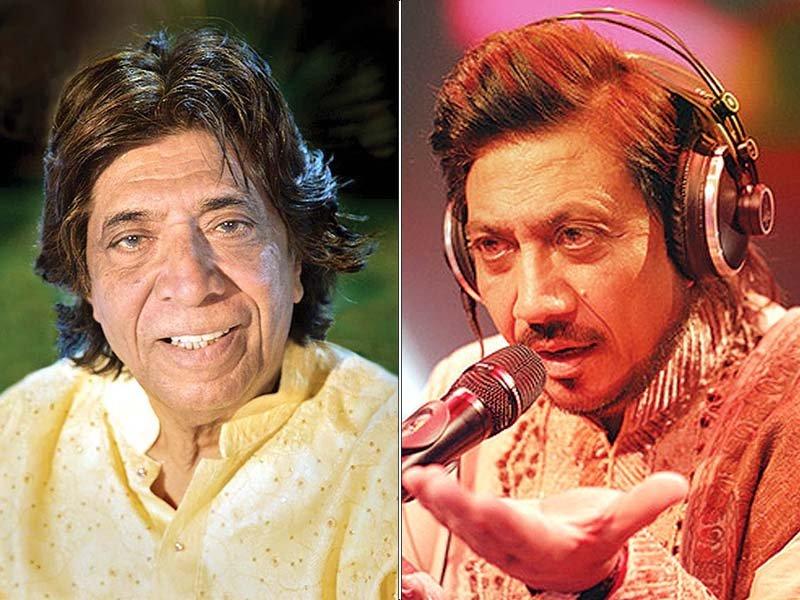
Ustad Bade Fateh Ali Khan (left) and Hamid Ali Khan (right), the younger brothers of Amanat Ali Khan
Wife & Children
Ustad Amanat Ali Khan married Almas Amanat Ali Khan and was blessed with 7 children. His sons Amjad Amanat Ali Khan, Asad Amanat Ali Khan, and Shafqat Amanat Ali Khan also carried the profession of singing. After his death, his sons Amjad Amanat Ali Khan and Asad Amanat Ali Khan carried the legacy of classical music and started performing with their uncle Ustad Fateh Ali Khan, whereas his youngest son, Shafqat Amanat Ali Khan specialised in fusion music.
Other Relatives
His great-grandfather, Mian Kallu, and grandfather, Ustad Ali Baksh Jarnail Khan, are considered to be the founders of Patiala Gharana in the 19th Century.
Career
He followed the Patiala Gharana’s tradition of singing classical Hindustani music. He had expertise in Khayal, Thumri, and ghazal styles of singing. He learned music from his father, Ustad Akhtar Hussain Khan. He started singing and recording music at a very young age. He was in his mid-teens when he started performing in the court of Maharaja of Patiala Yadavinder Singh along with his younger brother, Fateh Ali Khan. He had an appreciable command over sur, whereas his brother Fateh Ali Khan had a proficiency over ragas. The duo had divided their singing specification in such a way that Amanat Ali Khan used to sing in the upper notes and Fateh Ali Khan in the lower notes, which is according to their specialisation.
In 1945, the duo made their first public appearance on stage at a concert, sponsored by an influential music aesthete, Pandit Jeevanlal Matoo. In 1949, their performance at the All Bengal Music Conference in Kolkata gained them immense fame following which they became household names. Afterwards, the duo became the representative of Patiala Gharana and toured South Asia extensively. In the 1950s and 60s, Ustad Amanat Ali Khan was a renowned name in Hindustani classical music. He used to record songs for PTV and Radio Pakistan and performed in various countries during the peak of his career. Known for his melodic voice and the progressive intensification of taanas, Amanat Ali also worked with prominent classical singers such as Mehdi Hassan and Ahmed Rushdi. The thumri “Kab Aaoge Tum Aaoge” from the album ‘Raag Se Ghazal Tak’ is considered an all-time classic, which was composed by Amanat Ali Khan and sung by the duo of Amanat Ali and Fateh Ali.
Some of the most famous songs by Ustad Amanat Ali Khan are “Mora Jiya Na Lage,” “Pyar Nahi Hai Sur Se,” “Dil Mein Meethe Meethe Dard,” “Piya Nahi Aaye,” and “Chup Dhawen Te.” His most notable ghazals include “Yeh Aarzoo Thi Tujhe Gul Ke,” “Mausam Badla,” “Yeh Na Thi Hamari Qismat,” “Honton Pe Kabhi Unke,” and “Meri Dastaan-e-Hasrat.” The ghazal “Insha Ji Utho” was the biggest hit sung by Ustad Amanat Ali Khan, which was written by Iben Insha, and was first performed on Pakistan Television in January 1974. The ghazal was a super hit and demanded by the audience to be played again and again. He also sang two patriotic songs, “Chand Meri Zameen Phool Mera Watan” and “Aye Watan Pyare Watan” during his career span.
The Cursed Song
The poem “Insha ji utho” was written by the notable Pakistani poet Ibne Insha. The poem or ghazal is considered to be cursed as most of the members of Amanat Ali Khan’s family, including Amant Ali himself, died within a few months after singing the ghazal. Ustad Amanat Ali Khan wanted to produce an art piece to depict the poignancy of urban life in Karachi and Lahore and suddenly came across this poem by Ibne Insha. Soon after reading the poem, Amanat Ali expressed his desire to sing it and met Ibne Insha to tell him how he wanted to sing it.
In January 1974, Amanat Ali Khan performed this ghazal at a concert on Pakistan Television (PTV) for the first time. The ghazal became a superhit, and it gained popularity to such an extent that the audience demanded it to be played again and again. Soon after a few months after the ghazal gained popularity, he died at the age of 52. After some time, the producer of the ghazal Khalil Ahmed died too. In 1978, after suffering from cancer, Ibne Insha died at the age of 50, and on the same day, the ghazal was broadcasted on PTV. In the last days of his life, when Ibn-e-Insha was in hospital, he wrote many letters to his friends. In one of the letters, he wrote,
Yeh manhoos ghazal kitno ki jaan ley gi …?’ (How many more lives will this cursed poem take?) ” [1]Dawn
After the death of Amanat Ali Khan, his eldest son, Amjad Amanat Ali Khan, started singing the same ghazal, and he died in 2002. Then, in 2006, Asad Amanat Ali Khan, son of Amanat Ali Khan, sang the same ghazal at a concert for PTV. After a few months of singing the ghazal, due to ill fate or the curse of the ghazal, Asad died in 2007 at the age of 52.
After the consecutive deaths of the singers after singing the ghazal, “Insha ji utho” and the people associated with it, the ghazal is considered to be cursed. In an interview, Shafqat Amanat Ali Khan, the youngest son of Amanat Ali, when asked about the cursed ghazal, he replied,
When he died, everyone started associating it with the death,”. He added, “And then Ibne Insha himself died. My eldest brother Amjad bhai also used to sing it. He died. I don’t recall the producer’s name but he too died. And then Asad bhai.”
He further added that neither he nor anyone in the family was superstitious. He said,
Life and death are in God’s hands. We have no control over it. It’s just the painful memories that this ghazal brings back for us,”
Though he admits that his family doesn’t allow him to sing the ghazal, an “emotional ban” has been placed on him. [2]The Express Tribune
Award
In 1969, Ustad Amanat Ali was honoured with the Pride of Performance Award by the President of Pakistan. There are many more awards to his name.
Death
Ustad Amanat Ali Khan died of a ruptured appendix, at the age of 52 years, a few months after his father’s demise. Ustad Amanat Ali Khan took his last breath on 18 September 1974, in Lahore, Pakistan. He was buried in Mominpura Graveyard, near Laxmi Chawnk, in Lahore, Pakistan.
Facts/Trivia
- According to his brother Fateh Ali Khan, Amanat Ali wrote the lyrics “Kab aa’o gey” while both were flying to Nepal from East Pakistan at the invitation of Nepal’s King in the late 1960s. In an interview, Fateh Ali Khan recalled the incident and said that during the flight, their plane faced air turbulence following which Fateh Ali Khan got scared; however, according to Fateh Ali Khan, there was no sign of fear on the face of Amanat Ali, and when Fateh Ali Khan asked his brother “Khan Sahib tuhanoon dar naeen lagda” (are you not scared Khan sahib?), Amant Ali asked him for a piece of paper and pen and started writing the lyrics of the song “Kab aa’o gey” in Raag Bhairavi; the song was completed during the flight. [3]The Wire
- Indian playback singer, Lata Mangeshkar, also known as Nightingale of India, took training from Ustad Amanat Ali Khan in the early days of her career in 1945. But later, after the partition of India, he migrated to Pakistan. [4]NDTV Movies
- After his sudden death, his younger brother and singing partner Ustad Fateh Ali Khan was overtaken by depression, and he stopped singing for a few years. [5]Dawn
- Ustad Asad Amanat Ali Khan, one of the sons of Ustad Amanat Ali Khan, died on 8 April 2007 due to cardiac arrest in London. He was buried in the same graveyard, i.e. Mominpura Graveyard, Lahore, Pakistan, where his father, Ustad Amanat Ali, was buried. Later, Ustad Bade Fateh Ali khan was also buried in the same graveyard in 2017.
- While praising Ustad Amanat Ali Khan in an interview, his younger brother Hamid Ali Khan said,
Ustad Amanat Ali Khan was our family’s prodigy and his songs will remain iconic. The entire world was witness to his talent and it is due to which he ruled the world with his voice. He learnt classical singing from his elders and proved himself professionally. Besides being a top classical singer, he was also a beautiful man enriched with humility,” [6]The Express Tribune
- Ram Saakh, the signature raga of the Patiala Gharana, was the favourite of the twosome of Amanat Ali and Fateh Ali Khan.
- In their public performance at the Calcutta music conference, the duo of Amanat Ali-Fateh Ali performed the raga Puriya Dhanasri, and the asthai was “Sultan e Alam Nizamuddin Auliya.”
References
| ↑1 | Dawn |
|---|---|
| ↑2 | The Express Tribune |
| ↑3 | The Wire |
| ↑4 | NDTV Movies |
| ↑5 | Dawn |
| ↑6 | The Express Tribune |

